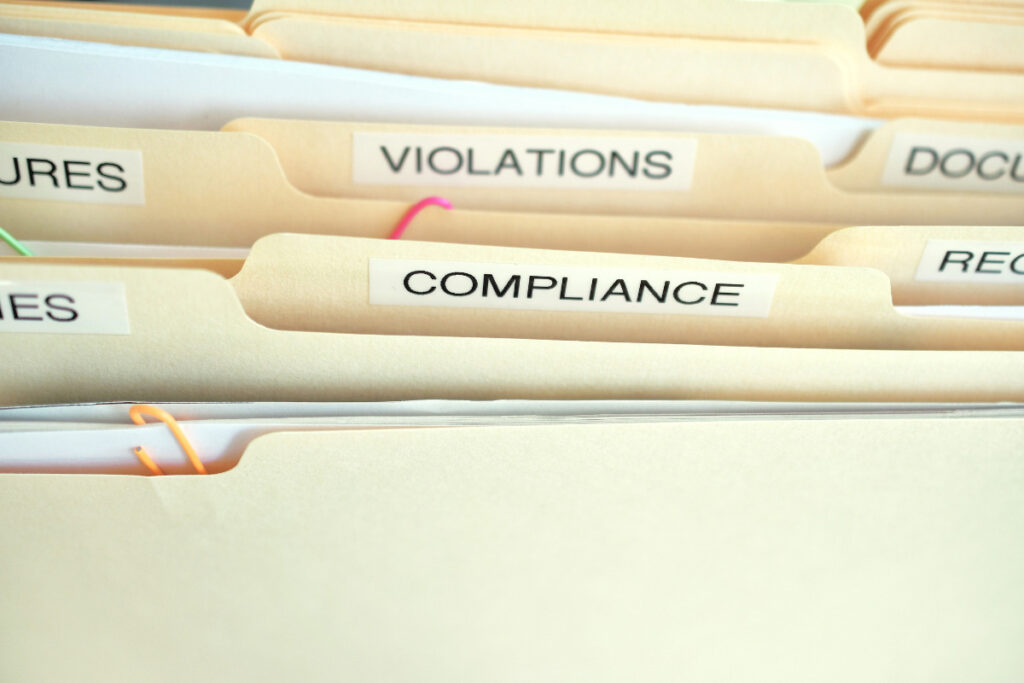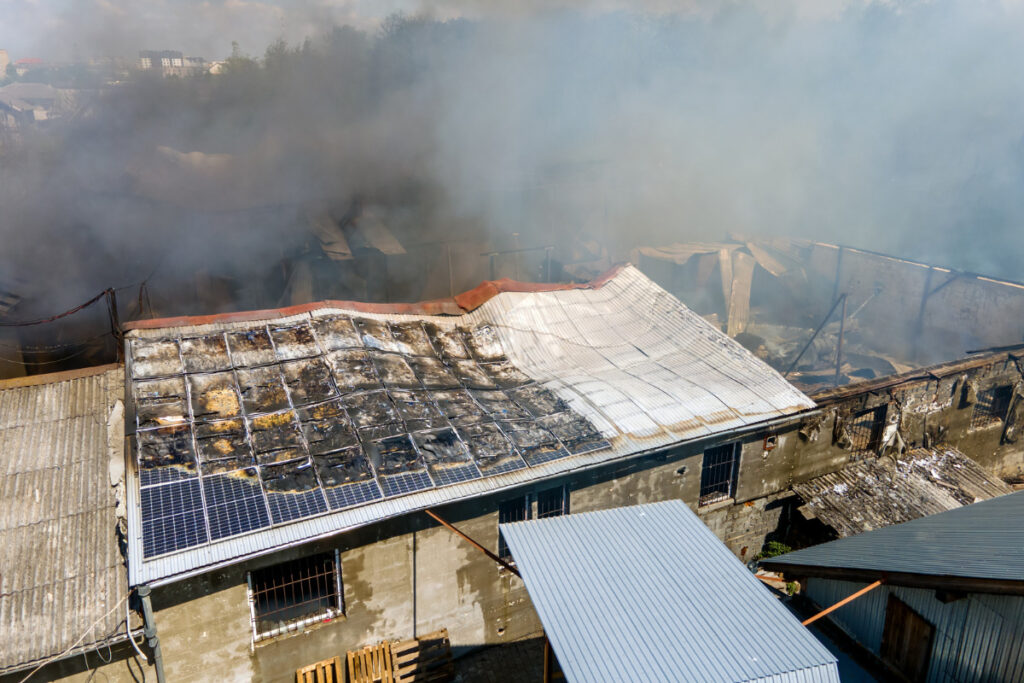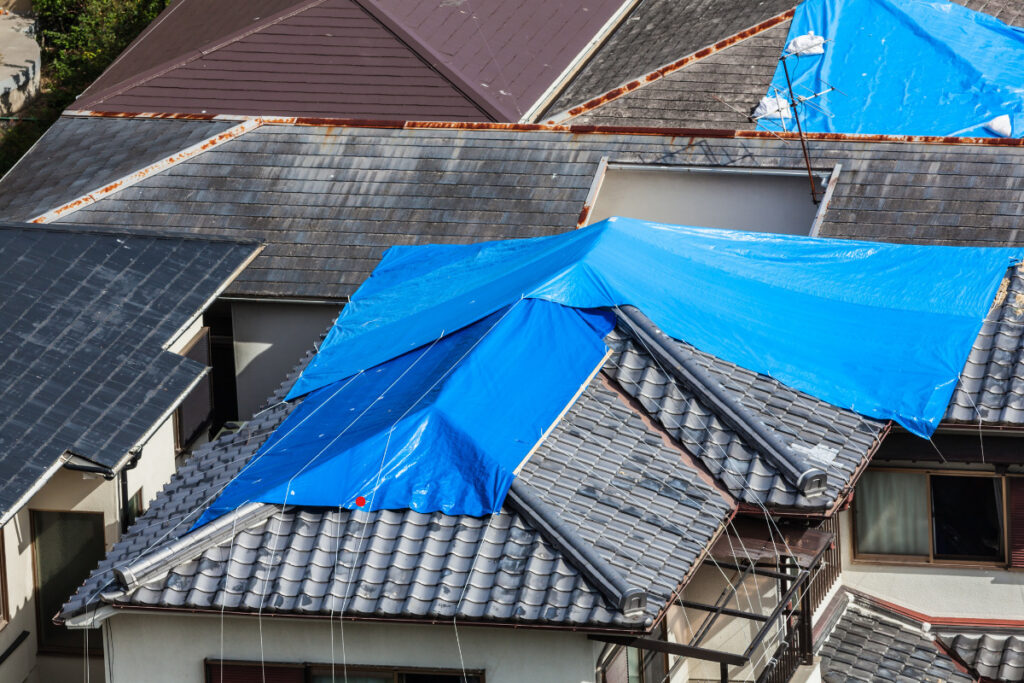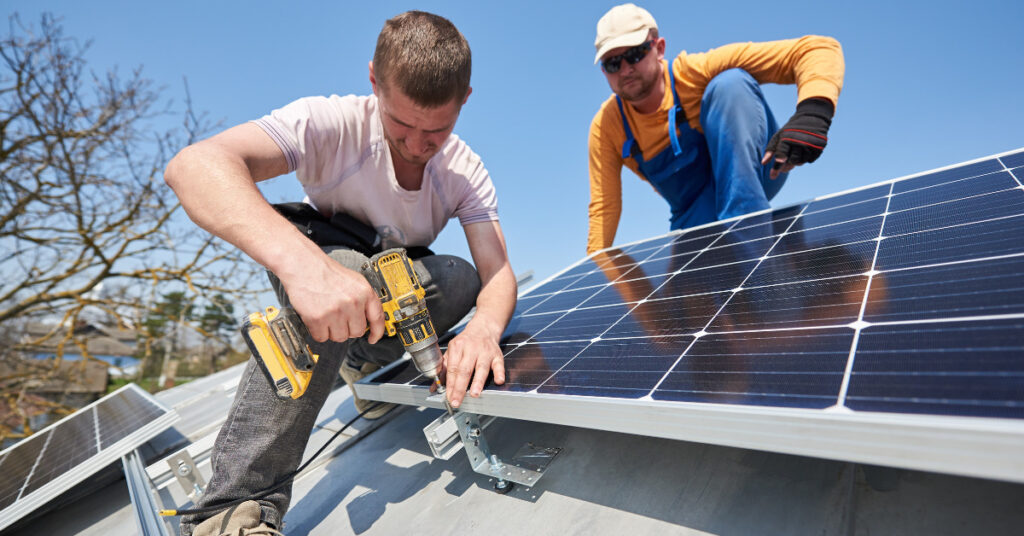Introduction
Solar installations promise a greener, more energy-efficient future for homeowners. However, some have experienced the dark side of solar that sounds like something from a horror movie.
This blog post will pull back the curtain on these frightening tales. We will reveal solar installation horror stories and debunk myths. Read on if you dare! We want to show you how to avoid being caught up in your solar installation horror story.
The Reality Of Solar Installation Disasters
Solar installation horror stories are a reality. This is due to faulty equipment, poor installation practices, misleading sales tactics, non-compliance with regulations and standards, and unexpected maintenance or repair issues.
Faulty Equipment And Poor Installation Practices
Faulty equipment and poor installation practices contribute significantly to solar installation horror stories. In some cases, inexperienced or unscrupulous installers cut corners using substandard materials or skipping essential safety precautions, resulting in systems breaking down prematurely or failing to function as promised. A malfunctioning system reduces energy efficiency and can pose hazards such as electrical fires and property damage. For example, unfortunately, Horry County residents have experienced negative outcomes due to poorly installed solar panel systems.
Beware of “fly-by-night” solar installers. These companies have little experience or no accreditation in solar installations. These firms often lack proper knowledge about industry standards and regulations. They usually engage in shoddy workmanship that ultimately compromises your solar system’s performance. Consequently, investing in an improperly installed solar array can lead to significant financial loss for homeowners when they face recurring issues with their malfunctioning panels.
Good communication between installers and customer support is essential for successful solar panel installation. Beware of disreputable organizations that may leave you in the dark with a malfunctioning system and no customer service. Invest wisely to avoid being left out in the cold.
Misleading Sales Tactics And Inadequate Planning
Misleading sales tactics are, unfortunately, far too common in the solar installation industry. One notable example is out-of-business installers. They entice customers with ultra-low prices and promises of quick installations, only to disappear once they’ve made a sale. These fly-by-night operations often fail to deliver on their commitments or provide poor-quality workmanship that can result in malfunctioning systems. Furthermore, they rarely offer customer service for troubleshooting and repair needs after the installation has been completed.
Inadequate planning is another issue that plagues some solar installations. When installers don’t consider factors like rooftop size, shading issues, or local building codes and regulations before beginning a project, it can lead to disappointing results for homeowners. For instance, an improperly planned system may not generate enough energy to reduce utility bills as promised or cause roof damage due to structural weaknesses from poorly placed panels. Additionally, inadequate planning increases the likelihood of non-compliance with local laws, which could result in legal troubles down the line. By thoroughly researching potential installers and seeking multiple quotes before deciding, homeowners can avoid falling victim to these horror stories while reaping the benefits of clean energy production from a successful solar installation.
Poor Communication With Customers And Unexpected Maintenance Or Repair Issues
One significant factor contributing to solar installation horror stories is the lack of proper communication between customers and installers. This can manifest in various ways, including delayed responses or vague explanations regarding system functioning or maintenance requirements. In some cases, when an installer goes out of business or operates as a “fly by night” operation, customers are left with no direct line for addressing concerns about their malfunctioning systems. This lack of customer service can lead to frustration and increased financial burden for homeowners, who may need additional resources to find alternate solutions.
Unexpected maintenance or repair issues are another common concern about poor solar installations. For instance, some homeowners might face water leaks due to improper sealing during installation. Or deal with non-functioning inverters caused by low-quality components used in their solar power systems. When these problems arise without warning, it adds stress and unnecessary costs for affected individuals – especially if they already had negative experiences with their initial installers, like unresponsiveness and lack of support throughout the process. These situations emphasize the importance of thorough research before choosing a reputable company that prioritizes communication and offers comprehensive after-sales support services for its clients, thus avoiding ongoing solar nightmares that could have been easily prevented through better planning.
Non-compliance With Regulations And Standards
Non-compliance with regulations and standards can lead to significant issues in solar installations. Installers who cut corners or ignore necessary rules put their customers at risk for safety hazards, legal issues, and reputational damage. For example, failure to obtain proper permits can result in fines or the requirement to remove and redo the installation entirely.
Poorly installed wiring that does not comply with electrical code requirements poses a fire hazard, while inverters that do not meet safety standards may cause electric shock or short circuits. Furthermore, not complying with industry standards can lead to equipment malfunctioning or failing over time. To avoid these risks, working with certified installers familiar with current regulations and industry best practices is important.

The Cost Of Solar Installation Disasters
Solar installation mistakes can have costly consequences, including financial loss, safety hazards, legal issues, and reputational damage. Read on to learn how to avoid these horror stories and ensure a quality solar installation for your home or business.
Financial Loss And Safety Hazards
One of the most concerning aspects of solar installation horror stories is the financial loss and safety hazards they can cause. Poorly installed or faulty equipment can lead to significant expenses for homeowners, mainly if it damages their property. For example, one homeowner experienced a house fire caused by a faulty solar panel installation, resulting in extensive repair costs and emotional distress.
In addition, incorrectly installed solar equipment can create safety hazards for people living in the home or neighbors. This highlights the importance of choosing an installer with proper certifications and ensuring compliance with regulations and standards to prevent such incidents. Investing time and resources into finding high-quality products and designs may seem like an added expense upfront, but it could save homeowners from significant financial losses.
Consumers must be aware of potential financial and safety risks when considering installing solar panels in their homes. Researching installers thoroughly, reviewing contracts closely, prioritizing communication and transparency, and choosing high-quality materials will help ensure you get what you pay for without any surprises.
Legal Issues And Reputational Damage
Solar installation horror stories don’t just come with financial loss and safety hazards – they can also result in legal issues and reputational damage. Non-compliance with regulations, misleading sales tactics, and poor communication can all lead to negative consequences for customers and installers. For example, a company that fails to meet industry standards may face fines or legal action from regulatory bodies. In addition, customers who experience poor service or faulty installations are likely to leave negative reviews online, which can harm the installer’s reputation.
One example of legal issues arising from solar installations is a case where an Australian homeowner discovered their solar system was not compliant with electrical safety regulations. Since the original installer was out of business, the homeowner had to pay thousands of dollars for reinstallation costs. As for reputational damage, there have been numerous cases of installers providing subpar customer service resulting in frustrated customers who leave scathing reviews online warning prospective buyers against using those same companies’ services.
Don’t fall for quick profits and amateur-level installations from shady solar companies. Choose reputable installers who prioritize compliance with regulations and transparent communication. Get high-quality installs and peace of mind!
Case Studies Of Solar Installation Horror Stories
The case studies of solar installation horror stories include a house fire caused by faulty installation, a failed solar panel system leading to financial loss, poor customer service resulting in frustration and delay, and legal issues arising from non-compliance with regulations.
House Fire Caused By Faulty Installation
One of the scary horror stories related to solar panel installation is that of house fires caused by faulty installations. This type of incident poses significant risks not only to property but also to residents’ safety. One example is a homeowner who experienced a fire due to improper wire connections during their solar panel installation. In some cases, poorly installed wiring or connectors can result in severe electrical issues, leading to a fire. The resulting costly damages could have been prevented if proper installation procedures had been followed.
Another homeowner’s horror story involved an exploding inverter that was left exposed under their panels for several months before it malfunctioned and sparked an electric fire causing significant damage. It highlights the importance of choosing qualified installers with certifications, such as NABCEP (North American Board of Certified Energy Practitioners), who adhere to strict guidelines for safe solar panel installations.
Don’t take risks with unreliable solar installers. Quality workmanship and adherence to national standards, such as NEC 690 code, ensure safety and transparency for your investment. Choose wisely and avoid property loss and potential life-threatening issues.

Failed Solar Panel System Leading To Financial Loss
Solar installations that fail to perform as expected can cause tremendous financial losses for homeowners. In one instance, a homeowner in California installed a rooftop solar panel system that promised significant energy savings over time. However, the panels failed to generate enough electricity due to poor installation practices, leading to high utility bills and reduced home value. Despite repeated attempts by the installer to fix the problem, the system remained unreliable, and eventually, the homeowner had no choice but to take legal action.
This horror story illustrates how important it is for homeowners to thoroughly research potential installers before committing to a solar panel system. They should ensure installers have proper certification and experience installing similar techniques in their area. Additionally, they should review contracts carefully and ask questions about maintenance guarantees and other issues upfront. By taking these steps, homeowners can avoid costly mistakes and benefit from reliable energy savings with their solar panels.
Accordingly, NREL found most Solar Panels performing really well throughout time. But still, there are some horror stories surrounding faulty equipment, installation, or non-compliance with regulations which led them towards significant loss financially and also questioned on environmental benefits too.
Poor Customer Service Resulting In Frustration And Delay
One of the most common horror stories associated with solar panel installations is poor customer service resulting in frustration and delay. Customers may face difficulties contacting installers to address concerns or experience delays in installation scheduling and maintenance appointments. This can be incredibly frustrating when customers are eager to receive the benefits of their solar system, such as lower energy bills and a reduced carbon footprint.
An example of this type of horror story includes a resident who was promised an installation date for their solar panels. But they ended up waiting several weeks beyond that date before any work began. When they attempted to contact the installer for updates, they received no response until finally being told that there were issues with ordering equipment. Such situations can cause financial losses due to delayed rebates or missed incentives and erode trust between customers and installers.
To avoid dealing with poor customer service when installing solar panels, consumers should thoroughly research potential installers, including checking reviews from previous clients. They should also prioritize clear communication throughout every step of the process by asking questions about timelines and what is involved in each stage so that both parties are on the same page regarding expectations.
Legal Issues Arising From Non-compliance With Regulations
Failure to comply with regulations and standards during solar installation can lead to serious legal issues. Installers who are not licensed or do not follow building codes can face fines, penalties, and even criminal charges. For example, a California solar company was sued for misrepresenting its products and violating consumer protection laws. Additionally, homeowners may be liable if the installation poses safety hazards or violates zoning regulations.
Homeowners should always review contracts thoroughly before signing to ensure they are compliant with local laws and best practices. In some cases, non-compliance can also void warranties on equipment or cause insurance claims to be denied. This highlights the importance of choosing reputable installers up-to-date on regulations, and having proper certifications.
Failing to comply with regulatory requirements poses financial risks for both customers and installers alike, making it essential that all parties prioritize adherence to industry standards to keep themselves out of trouble in the long run.

Debunking Common Solar Myths And Misconceptions
Contrary to popular belief, solar panels can work effectively in various weather conditions. If installed correctly, they will not damage your roof – read on to learn more about debunking common solar myths and misconceptions.
Solar Panels Can Work In Various Weather Conditions
Many wrongly assume solar panels are only effective in sunny, warm climates. However, this is far from the truth. Solar panels can work in various weather conditions, including cloudy days and even during winter months with shorter daylight hours. For example, Germany is a country that has been able to successfully generate a significant portion of its energy needs through solar power, although it considers notoriously gloomy weather.
When it comes to snow-covered areas, there may be a temporary decline in energy production due to the reduced exposure of solar panels to sunlight. However, reputable installers will take into account the potential impact of snow on their systems and ensure they are well-positioned for optimal performance when installing them.
Another common misconception is that extreme heat can damage solar panels. Most high-quality solar panel installations are designed to withstand harsh weather conditions, including high temperatures and intense UV radiation, without compromising performance or longevity.
Installation Costs Can Be Affordable And Worth It In The Long Run
While some may be deterred by the upfront cost of solar panel installation, it’s important to understand that it can save you money in the long run. Many states offer incentives and tax credits for installing solar panels, which can significantly offset the initial cost. Additionally, switching to solar power means decreasing your monthly utility bills, freeing up more money in your budget for other expenses.
In fact, according to data from the National Renewable Energy Laboratory (NREL), homeowners with solar panels save an average of $1,000 per year on their energy bills. That adds up quickly over time and ultimately results in significant financial savings. It’s also worth noting that high-quality installations are less likely to require maintenance or repairs, further reducing long-term costs.
Investing in a quality solar panel system benefits your wallet and the environment. By generating clean energy from renewable sources like sunlight instead of relying solely on fossil fuels, you’re doing your part to reduce greenhouse gas emissions and combat climate change.
Solar Panels Do Not Damage Roofs If Installed Correctly
Many worry that installing solar panels on their roofs will cause damage, but this is not necessarily true. When solar panels are installed by experienced and certified professionals using quality equipment and materials, they should not threaten your home’s structure. In fact, properly installed panels can actually protect your roof from weather damage and UV exposure.
In fact, many expert installers use a specialized flashing system to prevent water infiltration around the areas where the panels connect to the roof. This ensures no potential for leaks or other roofing issues caused by improper installation practices. Furthermore, most high-quality solar panel systems have warranties or guarantees. These warranties provide added peace of mind against unexpected maintenance or repair issues. Investing in solar power means clean, renewable energy with no risk to your roof or property. Proper installation and quality products are key.
High-quality Products And Designs Can Minimize Maintenance And Repair Issues
Investing in high-quality solar products and designs can significantly reduce maintenance and repair issues. Cheap, low-quality panels may cost less upfront but will likely lead to higher long-term expenses due to frequent repairs or replacement. Opting for reputable brands with a proven track record of reliability ensures your system is built to last.
One example of a quality design feature is using micro-inverters instead of string inverters. Micro-inverters increase energy production by optimizing each panel’s performance individually, reducing the likelihood of system-wide malfunctions. Additionally, well-designed mounting systems protect your roof from damage during installation and secure panels firmly in place during inclement weather. Reduce maintenance, save money, and increase solar panel efficiency for sustainability.

How To Avoid Solar Installation Horror Stories
To avoid solar installation horror stories, it is important to thoroughly research potential installers and check for certifications, get multiple quotes and compare, review contracts simply and ask questions, ensure compliance with regulations and standards, choose high-quality products and designs, and prioritize communication and transparency with installers.
Do Thorough Research On Potential Installers And Check For Certifications
Before choosing an installer, conducting thorough research and checking for certifications is crucial. Look for installers who are licensed, insured, and experienced in the field. You can ask friends or family members who have installed solar panels about their experiences with specific installers or do a quick online search for customer reviews.
Certifications from organizations like the North American Board of Certified Energy Practitioners (NABCEP) also indicate that the installer has undergone training and demonstrated proficiency in solar panel installation. In addition, verify if your chosen installer is authorized by your state or local government to provide solar panel services.
By doing your homework on potential installers and checking certifications before signing any contracts, you can protect yourself from fly-by-night companies or inexperienced technicians that could result in costly mistakes down the line. Choosing a reputable company with certified professionals ensures quality workmanship and peace of mind throughout the installation.
Get Multiple Quotes And Compare
It’s important to get multiple quotes when considering a solar installation. Don’t just settle for the first installer you find or the lowest price. Each installer offers different products, services, and warranties that can significantly impact your overall experience with solar power. By obtaining quotes from various installers, you can compare pricing, equipment, warranties, and customer service policies.
For example, one Horry County resident was initially attracted to a low-cost solar panel system. But encountered problems later due to poor customer service and malfunctioning parts. Had they taken the time to research other options and compare quotes, they may have found an installer who offered better quality products and customer support.
Remember that the cheapest option isn’t necessarily the best option in the long run. Take your time researching potential installers. Consider factors beyond cost before deciding to install solar panels for your home or business.
Review Contracts Thoroughly And Ask Questions
Before signing any contract related to solar panel installation, review the document thoroughly and ask questions about anything unclear. Contracts should outline the scope of work, costs, warranties, and timelines. Ensuring that all promises made by the installer are included in writing is crucial. Take your time reading through each clause carefully and look for any vague language or loopholes.
Asking questions is vital during this process to ensure everything stated in the contract aligns with what was discussed with the installer. A reputable company will happily answer your questions and explain where necessary. Don’t hesitate to ask for clarification on anything you don’t understand or raise concerns about any clauses within the agreement.
Ensuring compliance with regulations and standards should also be a priority when reviewing contracts related to solar panel installations. Sometimes, an installer may include unfair or unreasonable terms in a contract. Be sure to compare this document with other quotes you have received from different companies before making a final decision.
Ensure Compliance With Regulations And Standards
Your solar installation must comply with regulations and standards to ensure safety and functionality. For example, improper grounding can lead to electrocution or system failure. Research the laws in your area, such as building codes and electrical standards, and make sure your installer follows them. Additionally, ask for certifications from the installer. Look for NABCEP (North American Board of Certified Energy Practitioners) or UL (Underwriters Laboratories).
Non-compliance can have consequences ranging from legal issues to safety hazards. In Horry County, South Carolina, a resident filed a lawsuit against an unlicensed installer. The unlicensed installer caused a house fire due to faulty wiring on their solar panel system. Non-compliant installations may also not qualify for incentives or rebates from utility companies or government programs. By prioritizing compliance with regulations and working with certified installers, you can avoid potential risks and maximize benefits from your solar installation.
Remember that even experienced installers can overlook minor details in code requirements when designing systems. Check if they follow required codes for safe equipment operation and industry-specific rules like OSHA.
Choose High-quality Products And Designs
Choosing high-quality products and designs is crucial when considering a solar installation. High-quality panels typically have better performance warranties and are less likely to experience issues such as degradation or malfunctioning. While cheaper options may be tempting, they often result in costly repairs and maintenance down the line.
In addition to choosing high-quality panels, it is important to consider the design of your solar system. A poorly designed system can lead to inefficiencies and underperformance, resulting in lower energy savings than anticipated. Investing in a reputable installer who can provide custom designs based on roof orientation, shading, and energy needs is worth investing in.
When selecting products and designs for your solar system, prioritize quality over cost-saving measures. Investing upfront pays off in the long run with energy-efficient solar installations that meet your needs and benefit the environment. Go green and save green!
Prioritize Communication And Transparency With Installers
Excellent communication and transparency are essential when it comes to solar panel installations. It is crucial to choose an installer who is open about the entire installation process, including potential issues or delays that may arise. This way, you can plan accordingly and avoid any surprises down the line.
A reputable installer will be happy to provide clear and timely communication, ensuring no misunderstandings or miscommunications throughout the project. Moreover, ask your installers for regular updates during the installation process. By prioritizing communication and transparency with your installer from start to finish, you can ensure a smoother overall experience and prevent any horror stories from happening in the first place.
Conclusion And Importance Of Quality Solar Installations
In conclusion, the horror stories surrounding solar installation serve as a cautionary tale for consumers. Renewable energy is great, but prioritize safe and effective quality installations.
Don’t let a fly-by-night installer ruin your solar dreams- invest in quality installations today! Potential issues can be anticipated and avoided through research, communication with installers, and extensive planning. Enjoy the solar power benefits without legal headaches or costly repairs by taking these essential steps.

FAQs:
- What are some familiar horror stories associated with solar installations?
Solar horror stories: leaks, fires, missing contractors, and false promises. Don’t get caught in these spooky tales.
- How can I avoid falling victim to a bad solar installation contractor?
To avoid being taken advantage of by a shady contractor, research local companies. Read reviews from previous customers before signing any contracts. Ask for copies of licenses, insurance policies & warranties. Avoid unexpected costs by requesting written estimates that itemize all expenses for your solar project. No surprises, no shocks!
- What warranties should I expect with my new solar installation?
A reputable installer typically offers two types of warranty options: one covering the equipment (usually 25 years) and another covering their workmanship (typically around 10 years). Make sure you fully understand what is covered under each before agreeing to any terms or payments.
- Do I need permits for my solar installation project?
Yes – most cities/states require permits to be pulled before installing any solar panel system. City officials could delay/stop projects if they feel unsure about compliance or if safety concerns arise during the inspection. Be prepared by having all necessary paperwork ready and organized before beginning work.
